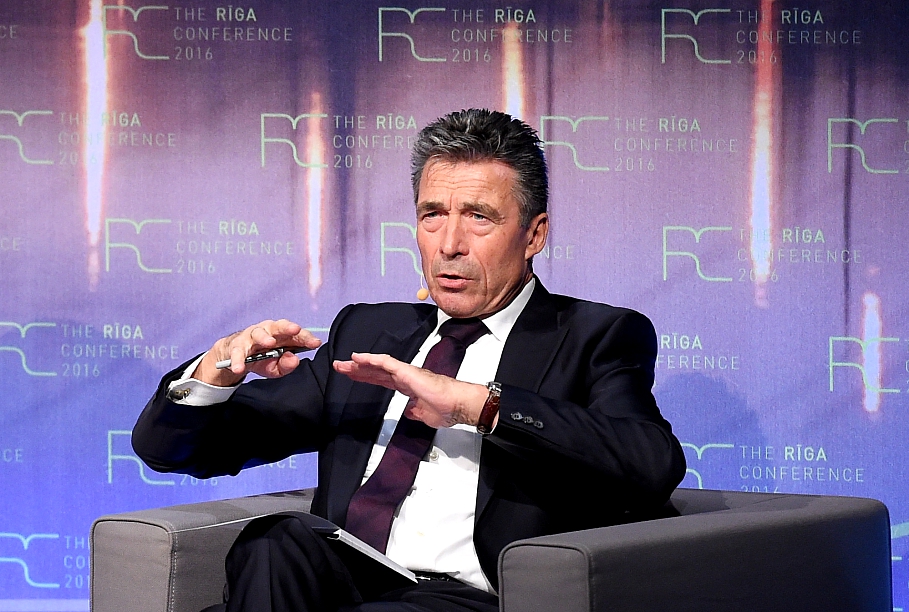Speaking in Brussels to Latvian Radio's Artjoms Konohovs, the former Danish prime minister said he was more than an impressive name on a letterhead.
"First of all, during my entire political career I paid great attention to the fate of the three Baltic States. I did this both as the prime minister of [Denmark] and as NATO's Secretary-General. This is the first reason why I was also prepared to make a personal contribution when I was invited to do so. Secondly, if we are talking about the Latvian financial system, then it must be admitted that it has its own challenges. Recent events clearly prove this," Rasmussen said.
"Honestly, I spent about half a year meeting with representatives of Norvik Bank before I decided to join the bank's council. The task of this council is to advise the bank on how to improve the fight against money laundering and corruption and to help make banking more transparent. These are the issues that I pay attention to there, and therefore I accepted the invitation," Rasmussen added.
The news that Anders Fogh Rasmussen had become deputy chairman of the Norvik Bank Council was reported by LSM in January and surprised many.
Until now, this relatively small bank in Latvia was known for its involvement in a scandal involving the "Winergy" wind park.
But recent weeks have seen the main owner of the bank, a British citizen of Russian origin, Grigory Guselnikov, involved in a bitter war of words with central bank governor Ilmārs Rimšēvičs, with each accusing the other of serious criminality. Rimšēvičs alleges a conspiracy against him by certain banks. Meanwhile Norvik is taking Latvia to international arbitration, claiming officials have subjected it to unfair treatment.
"As I mentioned, I spent about half a year meeting Guselnikov and Oliver Bramwell [the British Chairman of Norvik]. I wanted to be convinced that they really wanted to fight money laundering and corruption and make the bank more transparent. In the end I came to the conclusion that they really want this bank to meet all international standards. I know that Norvik Bank, like other Latvian banks, has had problems in the past. I am very aware of this. And that's why I decided to join the bank's board in order to work with my experience and international contacts to help them understand the direction in which they should work if they really want a clean bank," said Rasmussen.
Nor is he the only high-powered international figure on the Norvik board - sitting alongside him is former head of the German secret service, Dr. August Gustav Paul Hanning.
Meanwhile Norvik has been advertising heavily on both television and radio, appealing to pensioners to trust the bank due to its large branch network and offering them an enticement of a 5 euro gift voucher for doing so.
Later on March 27 the LETA newswire reported that Rasmussen has sent Prime Minister Maris Kučinskis a letter proposing the formation of an international task force to guide the country in cleaning up its banking sector.
In the letter, sent last week and obtained by The Associated Press on Tuesday, Rasmussen asks Kučinskis to create a group of experts from major Western institutions like the European Central Bank and U.S. Treasury.
Rasmussen says in the letter that the U.S. Treasury’s recent report, accusing Latvia’s ABLV Bank of involvement in money laundering and bribery, had undermined progress in cleaning up Latvia's banking sector. He said that, amid reports of corruption among Latvian officials themselves, having an international group of experts would be the only way to restore credibility to the sector.
According to Rasmussen’s proposal, the group of 5-10 "international luminaries" would meet at least four times a year.































